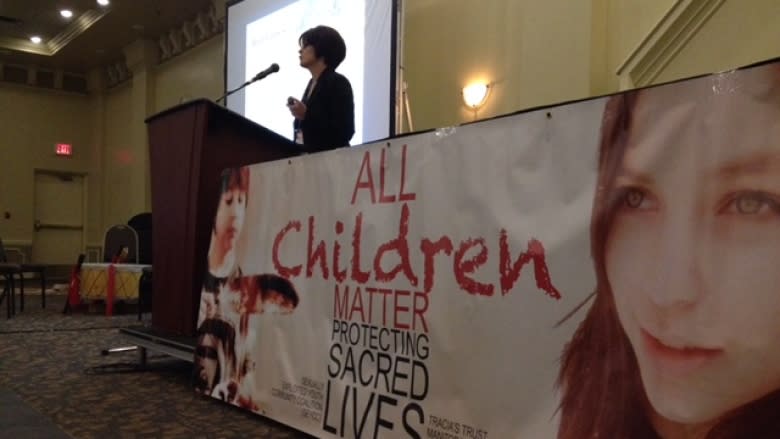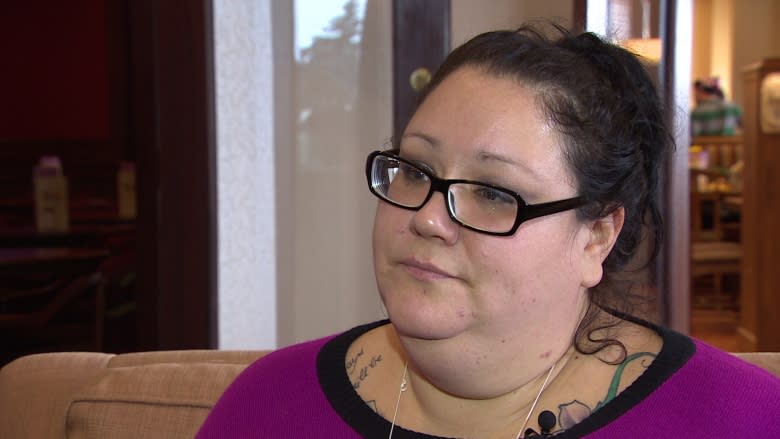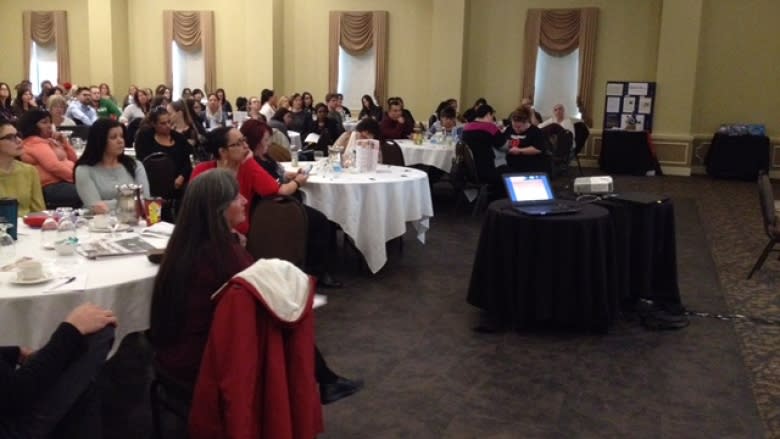Domestic trafficking an issue for aboriginal women and girls, says Canadian author
An expert on domestic sex trafficking of aboriginal girls in Canada says a national-level strategy is needed on the issue.
Anupriya Sethi delivered the morning keynote at a one-day public forum organized by the Winnipeg Sexually Exploited Youth Community Coalition on Thursday.
In 2007, Sethi published the first research study on the topic of domestic sex trafficking of aboriginal girls in Canada, documenting what makes indigenous women and girls more vulnerable to being trafficked.
She said it's only recently that people have started talking about human trafficking taking place within Canada.
"There is a lot of ignorance and misunderstanding," she said. "It's poverty, it's cyclical, it's happening in the aboriginal community."
It marks the sixth year for the forum, called All Children Matter: Protecting Sacred Lives. The event is being held as part of Stop Child Sexual Exploitation Awareness Week in Manitoba.
Sethi said in addition to a national strategy, an alliance between aboriginal and non-aboriginal people is needed to combat human trafficking.
"I get the sense that society doesn't care about missing and murdered indigenous women," she said.
Sethi believes racism and a "not in my backyard" mentality are keeping this issue under the radar, but domestic trafficking is a real problem.
Victims often offered a place to stay
She said victims are being recruited at airports after coming from small, remote communities. They are vulnerable and are offered a place to stay, and that's when they are forced into the sex trade, Sethi said.
Sethi said recruitment spots include schools and bars, and it's often boyfriends who are traffickers. Other girls are involved in recruiting, she added.
Sethi identified a trafficking route between Saskatoon, Regina and Winnipeg.
"One girl said she would go to sleep in Winnipeg and wake up in Regina," Sethi said.
Approximately 250 people registered in Thursday's forum, including elders, youth workers, social services workers and those with lived experiences.
'I'm surprised I'm alive,' says survivor
Other speakers included Bridget Perrier, who was lured into sex trafficking when she was 12 years old in Thunder Bay, Ont.
Perrier said she was exploited and trafficked for 10 years. For four of those years, she was bought and sold on ships travelling in the Great Lakes, she said.
"I'm surprised I'm alive today," she said.
"I've had attempts on my life, I've been beaten, I've been raped, I've been sold, I've had my dignity taken."
Now a co-founder of Sex Trade 101, a public awareness and education organization, and an advocate for ending human trafficking, Perrier agrees that Canada needs a national strategy to deal with the issue.
As well, she said society needs to examine the root of the problem, which she said is the ongoing demand by men for paid sex.
"Our men are failing out there and we need positive role models for these men," she said. "We need real men to step up and say 'Listen, buying sex is not a good thing.'"
First Nation leads the way
Leaders with the Norway House Cree Nation say they're doing what they can to prevent trafficking in their community, located in northern Manitoba.
Norway House is the first aboriginal community in Manitoba to create a program that addresses the issue of child sexual exploitation by talking to local youth.
"We take it upon ourselves to go the school and talk to the youth and say this is what child exploitation is, these are the warning signs, these are the triggers," said Gilbert Fredette, a First Nation councillor.
"It shows the youth that we really care as leaders, and as a healthy male and female perspective, to continue that battle and show our people that we are standing up against that."
Fredette said many young people were surprised by what constitutes child exploitation.
"A lot of the youth were saying ... I didn't know that was luring, I did not know that we were getting exploited," he said.
The afternoon keynote was given by Glendene Grant, the founder of Mothers Against Trafficking Humans (MATH). Her daughter, Jessie Foster, was trafficked and has been missing since 2006.
Thursday's forum aimed to raise awareness of the issue of sex trafficking and come up with strategy. It was funded by Tracia's Trust: Manitoba's Sexual Exploitation Strategy.




